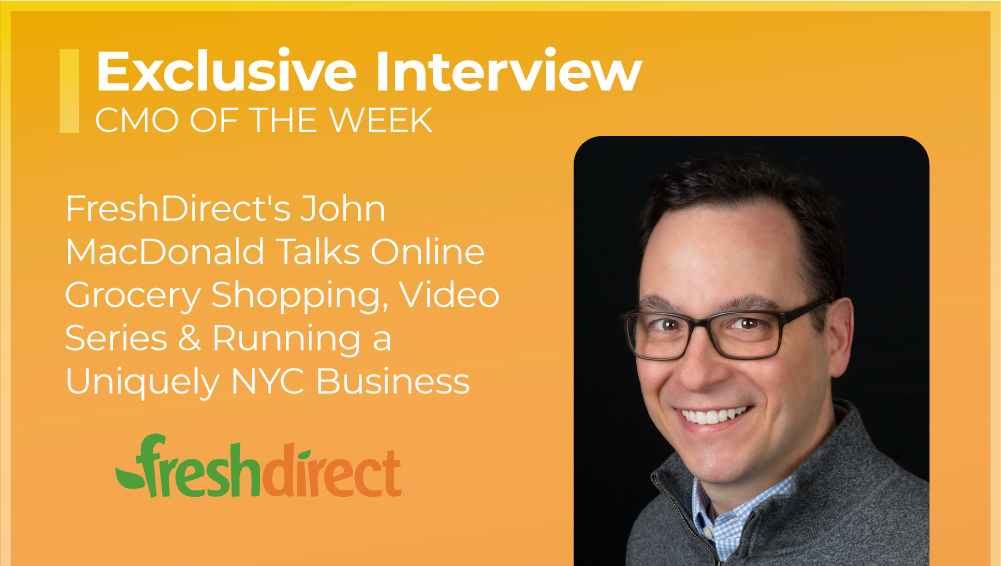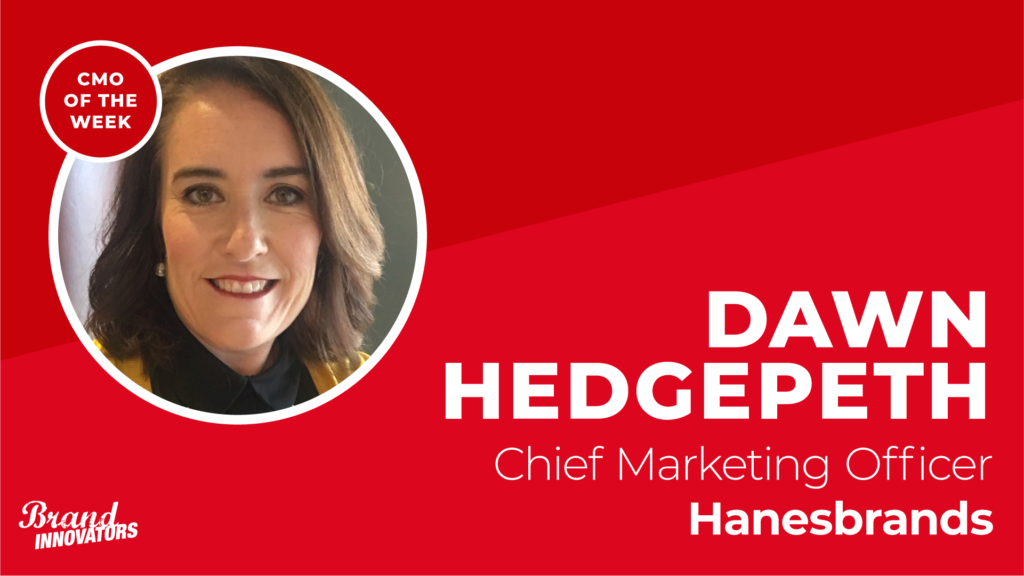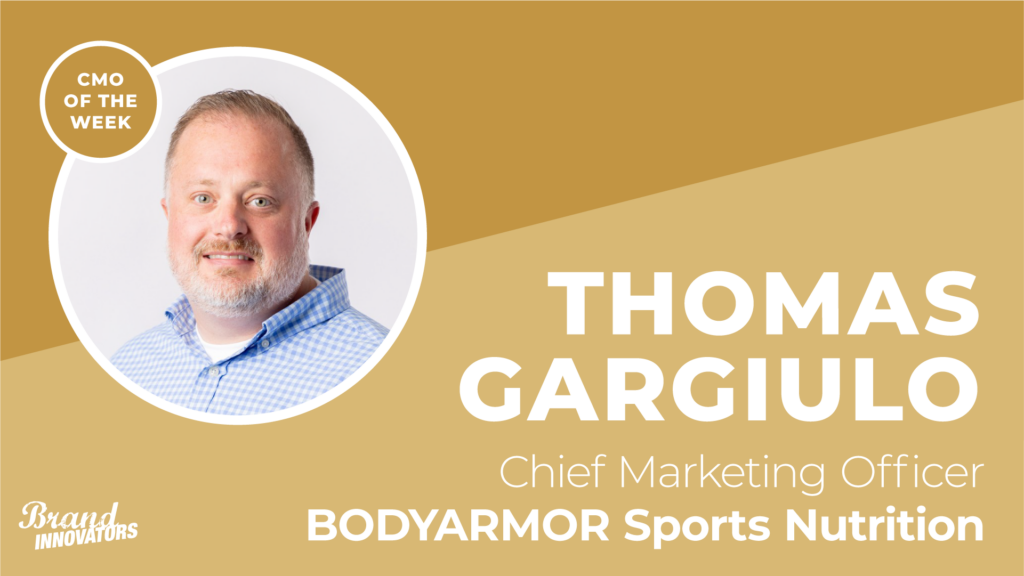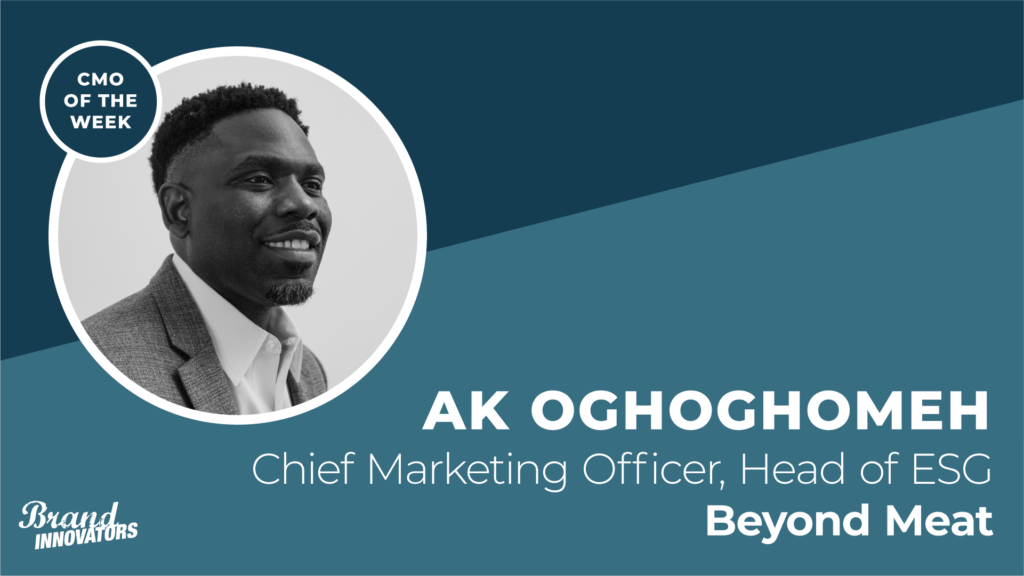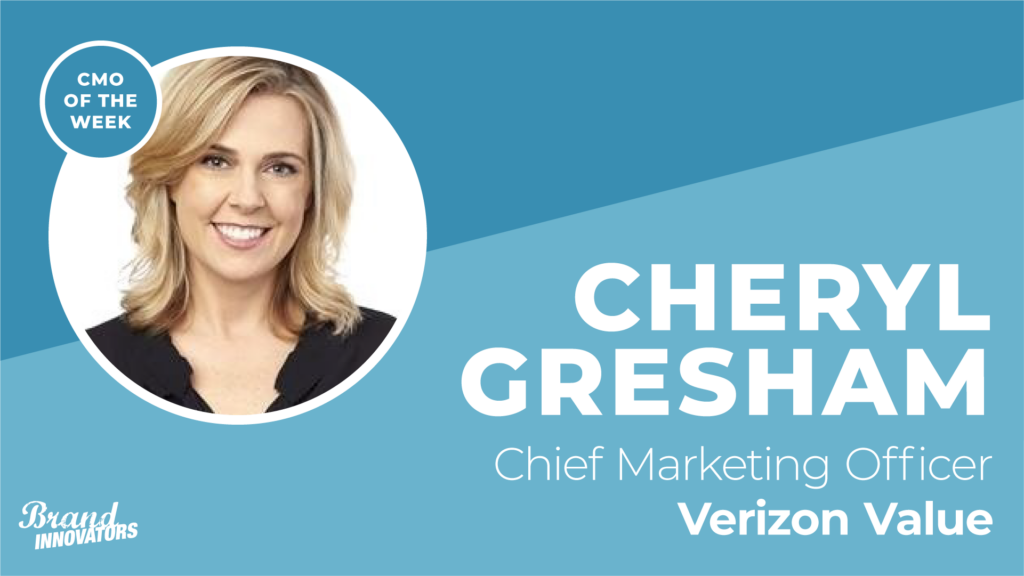FreshDirect’s John MacDonald has spent his career in the grocery business but has never been as excited about a brand as Fresh Direct. The chief marketing officer of the NYC-based online grocery delivery company says it is a “very unique and special company” because it is purely ecommerce, operates locally and is focused on high quality food.
“We make what I would consider the best croissants that I’ve eaten outside of Europe. We bake them every day in our plant in the Bronx. Then we flash freeze them so that when you get them, you just have to put them in the oven for the last five minutes,” says MacDonald. “Any store you go to has rotisserie chicken but our rotisserie chicken is cooked just to the point where it needs about 10 more minutes. We deliver it to you so that you can reheat it in your oven and then when you get it out, it’s perfect. It’s not dried out from sitting under a lamp.”
FreshDirect celebrated its 20th year in business last year. The company takes pride in being a New York City company that only serves the metro area. “Our strategy is about being 100% New York City,” says MacDonald. “That’s about food and culture and doing things in the city. I really want the customers to understand who we really are and get reignited about it.”
The brand started 2023 by kicking off a new brand campaign “Food That Delivers You,” focusing on its high quality fresh food offering – the 20 year old company’s first modern refresh. The brand effort included TV, online video, OOH, a new website and will include a new premier loyalty program for returning customers later in the year.
“We make sure that the food is taken care of the way it needs to be taken care of from the start,” says MacDonald. “The idea is to reintroduce the brand and remind people of who we are with renewed excitement.”
Brand Innovators caught up with MacDonald from his office in New York to discuss online grocery shopping, video series & running a uniquely NYC business. This interview has been edited for clarity and length.
What was the strategy behind the new campaign?
We want to tell customers that we have a passion for food. Food plays either a conscious or unconscious role in everyone’s life. How many times have you eaten something that you do the happy dance because you love eating it? Or it reminds you of a time and place that you were in and you close your eyes and you enjoy the quality of it? We’re not just selling you strawberries and putting them on the floor and getting them because you want strawberries, we’re selling you the best because that’s important to you. So it’s important to us.
The purpose of the campaign was to reintroduce and reinforce the fact that we know how busy you are. We offer not only great high quality food, but we offer it to come to your door. You’re going to get the best when you get to it, so you don’t have to worry about it. We’re going back to the roots of why we’re in the business to remind people of how great that is. We produced a couple different spots. We have a couple of different customer targets but they halo together very nicely.
Who are these target consumers?
FreshDirect has always been very engaged with a foodie type of New Yorker. This high quality-conscious customer is slightly older and makes a little bit more money and spends a good amount of money every week on groceries. But we went back to re-segment the market, because we hadn’t done it for a long time. We found that this segment is still very strong, but there’s this other segment of people – a good portion of the market – who really want high quality food.
They aspire to associate with brands that give them an aspirational element. They want to eat better. They spend a good amount of money on food, because it’s important to them and their family. They are slightly younger. They have more kids. For us, it’s about delivering on our promise to them every single day. If we give them the food at the right time and we solve a problem for them, we’re going to be right for them. We’re aspiring for both of those segments, because they really want the same thing. They just wanted it for slightly different reasons. We fulfill both of those reasons.
How does your mission show up in your videos?
Every food retailer has these sourcing videos where they say, ‘here’s the cow, here’s the cheese, here’s the field, here’s the grass that they eat and this is what we produce.’ We wanted to talk about the passion that we have for food and then the passion of our partners and suppliers. So we created a couple of different series of videos. One is called Sourced. One is called The Maker and one is called The Origins. The Sourced videos aren’t just about here’s the cow, here’s the milk, here’s the cheese. It’s really about what drives them and what their passions are behind what they do every day.
Whether you are Homa [Dashtaki] who owns White Moustache in Brooklyn and why does she make great yogurt and why do we sell it or you’re Hepworth Farms and you’re growing all these great organic vegetables upstate. There’s a connectivity to the passion people have about their business that translates to the passion that we have about food. It’s like a little turn of the prism to show you a different color of a sourcing video.
How is the recession impacting your go-to market strategy?
We talk to the customer a lot. We have a ton of interaction, because when you engage with us, we have to know you and you have to know us. They’ve told us repeatedly over the last year and a half that they don’t like fees and that that’s a barrier.
We’re trying to eliminate economic barriers for customers so this year, any new customer will get a year of free delivery. We’re going to waive those fees to make it frictionless. We want you to come in and experience the great food without barriers and decide for yourself. We know that as customers engage with us, they like what they’re getting. They like it so much, they keep coming back. We’ve tried to remove that one economic barrier as much as we can, so that people can feel good about shopping with FreshDirect.
Can you talk about your approach to leadership?
We all work way too much and spend enough time at work to be miserable at it. It’s about being kind. It’s about listening to people. It’s about making an environment where people want to work because they feel secure. It’s about me personally giving them cement under their feet, so that they don’t have to worry about other things so that they can go do the best job that they can. It’s nice to aspirationally be the type of department or company that takes five minutes and says, ‘Hey, how are your kids doing and what’s going on with your parents’ and then you can get into work.
It’s also straightforward. It’s very honest. Let’s talk about things the way they are and not the way that we think they should be talked about, and deal with issues in the right way.
How have your past roles at other brands helped your perspective today?
I spent the last 20 odd years in retail grocery. Pure play online grocery marketing is completely different from brick-and-mortar and omnichannel marketing, where there’s more levers to move back and forth.
I’ve eaten a lot of grocery food in my time and I’ve never eaten food like this. FreshDirect has the best grocery food. It makes it very easy for me to believe in what we’re doing. An online retailer is a whole different animal to grocery but there’s so many similarities in how customers behave and our approach to food and communication, as well as just great creative. It prepared me to have a very honest dialog with our customers.
What are the big challenges in the grocery space today?
One of the big challenges groceries face today is supply and demand. As you go through the grocery store, you can see that sometimes there’s aisles that are sparse. Maybe there is a shortage of pet food or milk. With FreshDirect, it’s a little bit different because we have a different supply chain model. Ninety percent of our products come directly from the supplier or the farm. We don’t go through a lot of middle distribution. It makes it easier to have that supply. So we’ve been able to mitigate that challenge.
As a marketer, I feel very confident when I say lemons are on sale this week, or here’s a great lemon tart that you should make, that I’m going to have the best ripe lemons. The challenge is always showing value as well. Every retailer has to make sure that the customers see the value not only in quality but in the price of the product.
What predictions do you have for brands in 2023?
There’s this wave of nostalgia that’s going through everything from traditional recipes from our childhood to watching a movie with that person from 20 years ago. We long for a simpler time that gives us memories. Food has a big part of that because food has a huge nostalgia component to it. I remember things that my mother used to cook that I want to cook. People are remembering and looking for those different recipes and different types of food.
Another trend is this connection to hyper locality. I want to know where my food comes from. I like the fact that the yogurt I’m eating was made in Brooklyn and the croissants were made in the Bronx because there’s a traceability to it.
